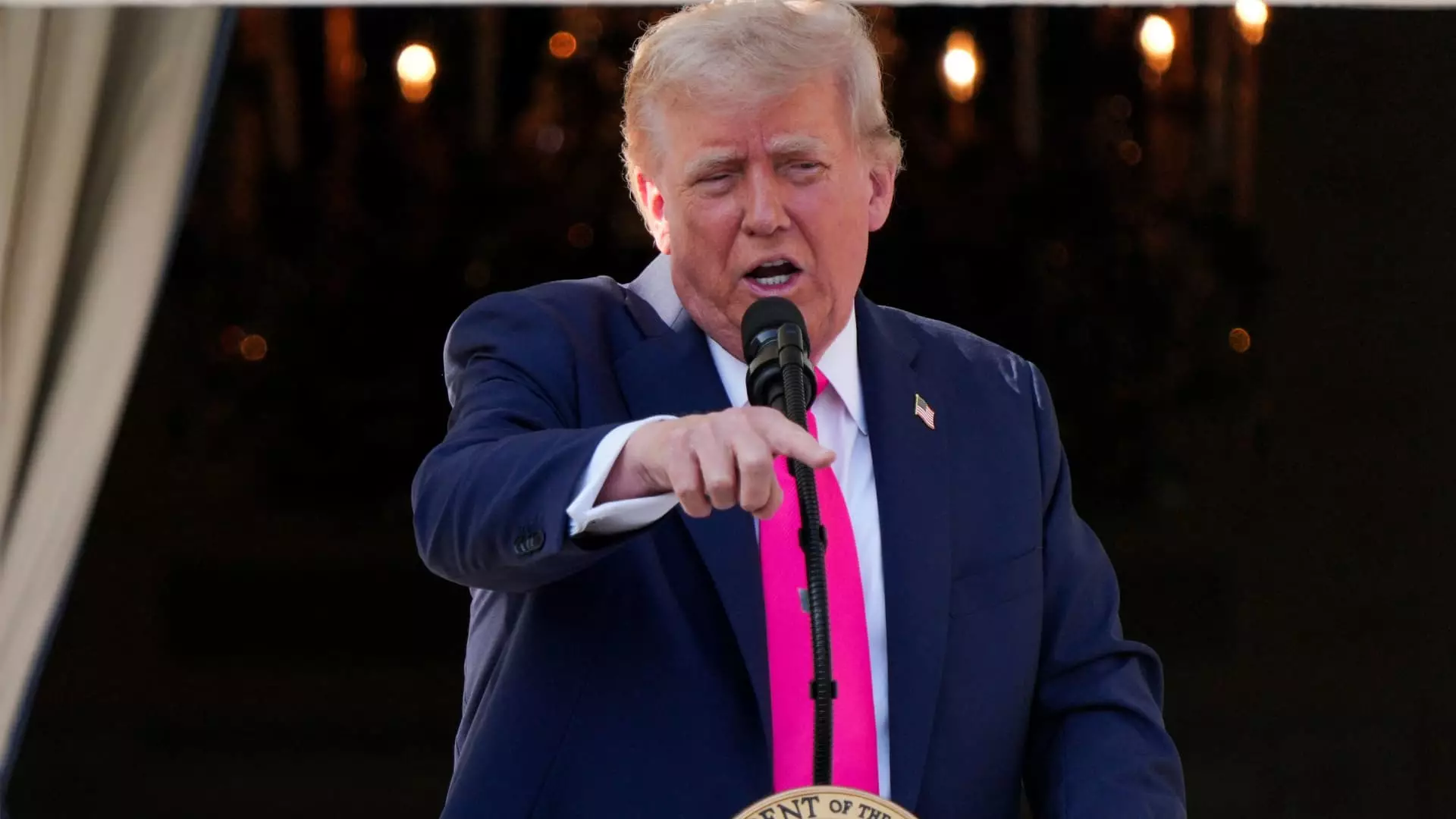In the realm of international economics, aggressive tariff strategies like those proposed by President Trump reflect a dangerous retreat from conventional diplomatic and trade norms. While appealing to nationalistic sentiments and the desire for immediate leverage, this approach ignores the intricate web of global supply chains and interconnected markets. Imposing unilateral tariffs—especially on such a broad scale—risks igniting retaliatory measures that could inflict collateral damage across diverse industries, ultimately undermining the economic stability of both the U.S. and its trading partners. In essence, these “take it or leave it” offers are not strategic negotiations but reckless bluffs that threaten long-term prosperity for the sake of short-term political points.
A Flawed Vision of Economic Self-Sufficiency
The Trump administration’s tariff threats reveal a fundamental misunderstanding of the global economy’s nature. Instead of fostering mutually beneficial trade relationships, the strategy hinges on protectionism, which historically leads to decreased efficiency, higher consumer prices, and reduced access to innovative goods. By signaling the potential for tariffs up to 70%, the administration seems to believe that brinkmanship will force concessions; however, experience shows that such tactics often backfire. Instead of protecting American workers, they risk isolating the U.S. from vital markets and alienating allies whose cooperation is essential for tackling broader issues like climate change and technological innovation.
The Illusion of Quick Fixes in Complex Negotiations
Trade negotiations are inherently complex, often taking years or even decades to mature into fully fledged agreements. The White House’s hurried timeline—trying to impose tariffs before the July 9 deadline—demonstrates a lack of appreciation for this reality. The recent attempts to negotiate with Britain, Vietnam, and India highlight the limited success of such strategies; these deals are piecemeal and fail to address underlying structural issues. Rushing to implement tariffs without a comprehensive, carefully crafted strategy is a recipe for chaos, risking trade disputes that could impair economic growth far beyond the immediate political cycle.
The Cost to Ordinary Americans
Beyond geopolitics and negotiations, the real victims of these tariffs are everyday consumers and workers. When tariffs are increased, the cost of imported goods rises, pushing inflation higher and diminishing household purchasing power. Industries reliant on imported raw materials face increased costs, which often translate into layoffs or reduced wages. The perception of strength in trade policy may be politically advantageous, but the economic pain manifests most acutely among the middle and working classes. This approach overlooks the importance of maintaining a balanced, fair trade environment that fosters growth without disproportionately burdening ordinary Americans.
Questioning the Wisdom of Competitive De-escalation
It’s worth contemplating whether the Trump administration’s aggressive stance is even a strategic move or a form of brinkmanship driven by political necessity. While some may see tariffs as a lever to renegotiate better terms, history suggests that such tactics often lead to long-lasting damage, fostering distrust and damaging relationships that could have been cultivated through diplomatic finesse. The failure to reach broader deals with key partners like the EU and India signals that confrontational tactics are ineffective at solving complex trade issues. Instead, a willingness to engage in collaborative, multilateral negotiations remains the more rational path toward sustainable economic growth.
The current trade policy trajectory reveals a dangerous overconfidence—an illusion that tariffs alone can reshape the global economy to favor American interests. In reality, this approach risks incurring severe economic and diplomatic consequences, threatening to entrench global instability rather than resolve it. Only through thoughtful diplomacy, respect for international agreements, and recognition of the interconnected nature of modern markets can sustainable solutions be achieved. The Trump administration’s reliance on tariffs as a primary tool is not a sign of strength but a stark indicator of economic shortsightedness and political impulsiveness that could scar the American economy for generations to come.

